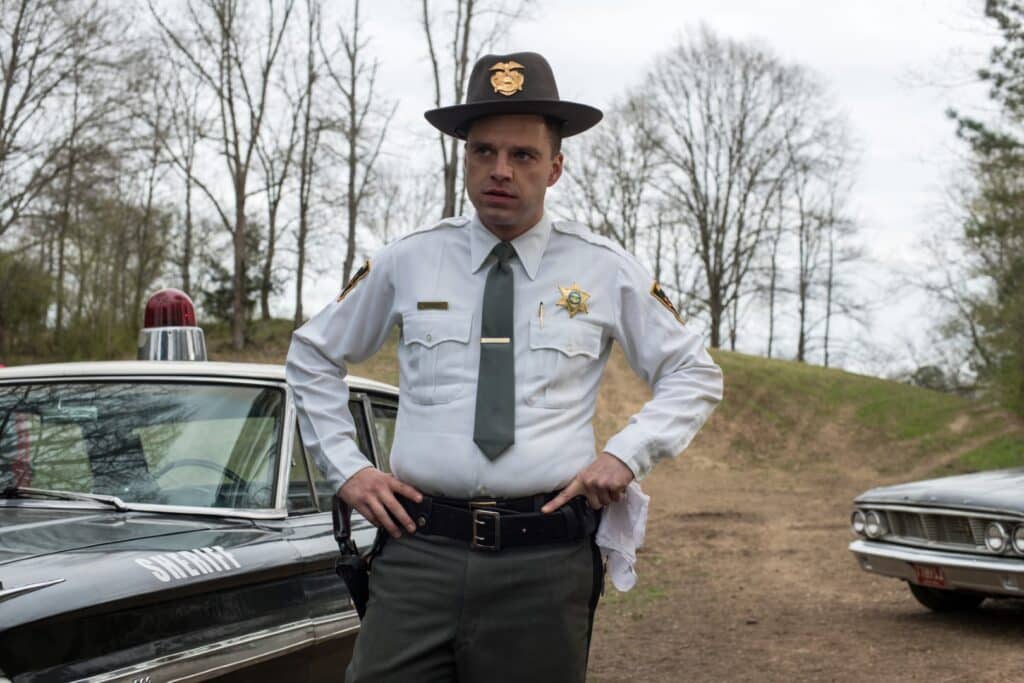Read also:
How to Watch FX Live Without CableHow To Watch AMC Without CableHow to Watch ABC Without CableHow to Watch Paramount Network Without CableAntonio Campos’ sprawling, period-crime drama boasts an impressive cast centered around an unflinching Tom Holland performance.
Director Antonio Campos doesn’t tend to make the most uplifting films, nor has he ever made something as many people will see. His latest project, The Devil All the Time, which will grace many a Netflix landing screen with Tom Holland‘s heartthrob face stretched across the marketing, may well change that. But make no mistake — Campos shows no mercy to this unsuspecting new audience with a film that is unrelentingly bleak, much like the eponymous Daniel Ray Pollock book on which it’s based.
Like many of the crime epics before it, there’s more to The Devil All The Time than a single log-line can do justice. Simply put, it’s a web of seemingly disconnected stories moving back and forth in time between the 1940s and 1960s, crisscrossing and intersecting across a series of counties that comprise the border of Ohio and West Virginia.
After its initial 30-minute prologue, Campos shifts the main storyline to Arvin Russell (Holland), a teenager still grappling with the intense tragedies of his past. This manifests specifically in his observations of the ways men distort religion to enact horror upon the people he loves. Despite a similarly troubled childhood, his step-sister Lenora (Eliza Scanlen) still clings fiercely to her faith, and as you can probably guess, the film proceeds to test these two siblings in extraordinary ways.

It almost reads as parody, given how swiftly the film throws around its extra subplots, constantly teasing how these colorful characters will come into play later on, like some perverse version of a Tarantino film mashed together with 2018’s Life Itself. There’s the dirty sheriff (Sebastian Stan) trying to win reelection despite his ties to the local crime boss, a charismatic roadshow preacher obsessed with testing his fears (Harry Melling), a serial killer couple (Jason Clarke and Riley Keough) preying on unsuspecting hitchhikers, and yet another dastardly preacher (Robert Pattinson) with some twisted, dark secrets of his own.
Not everyone in The Devil All The Time is the same brand of horrifically flawed, and that’s surely the point. The film is a true tour of what’s wrong with the human condition when taken to biblical extremes, so it makes sense why many viewers will likely scoff at some of the choices made by some of the film’s most tragic characters.
But the saving grace here is the film’s laser focus on the connection between Arvin and Lenora, and how they choose to grapple with a cycle of violence that places them right in the center of two profound wars: the one Arvin’s father fought in—which informed later decisions that would haunt him forever—and the Vietnam War just on the horizon. There are more than enough tales of the horrors of war, so this story spotlights the war at home, which leaves men and women to their own devices.
The film is a true tour of what’s wrong with the human condition when taken to biblical extremes.
Viewers will likely wonder whether or not to recommend Devil, at least in a moment in time when real life is already pretty grim and filled with violence as it is. Viewers should know beforehand that they’re in for a deeply challenging and provocative film about generational evil and its relationship with Christianity, which can all too often be co-opted to achieve the opposite of what is preached in its name.
There have been a good number of Southern Gothic crime films in this vein, from The Neon Bible to Lawless (which even shares Clarke in its cast, along with Mia Wasikowska who is in both films). But where The Devil All The Time makes a true impression is in its balancing act between these thematically intertwined stories, which connect in intriguing ways the audience eventually comes to realize.
Not a single performance is unremarkable; Holland in particular has to stand out as the heart of the film while far more unconventional performances flap around him at a consistent beat.

When the film finally does pick up its pace and bring together its wayward souls, it relies almost unfairly on Holland’s shoulders. Weakened, vulnerable, and as doe-eyed as ever, his character struggles against the most extreme circumstances, Campos remarking on how the evils of men inevitably burn and discard the true ebbs of history. The fictional pages of a book are solely where justice can live and the mind’s eye of the author can set the record straight. But this is a hopeful tune, not an oppressive one.
For all its valleys of death, The Devil All The Time fears no evil by its final minutes. Campos just has to hope the right audience will endure what it takes to reach that bittersweet resolution.
The Devil All the Time is currently counting its sins on Netflix.